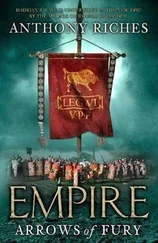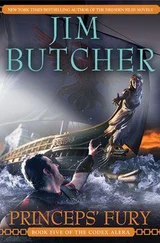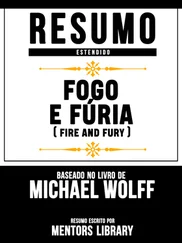T. Goeglein - Cold Fury
Здесь есть возможность читать онлайн «T. Goeglein - Cold Fury» весь текст электронной книги совершенно бесплатно (целиком полную версию без сокращений). В некоторых случаях можно слушать аудио, скачать через торрент в формате fb2 и присутствует краткое содержание. Жанр: Триллер, на английском языке. Описание произведения, (предисловие) а так же отзывы посетителей доступны на портале библиотеки ЛибКат.
- Название:Cold Fury
- Автор:
- Жанр:
- Год:неизвестен
- ISBN:нет данных
- Рейтинг книги:3 / 5. Голосов: 1
-
Избранное:Добавить в избранное
- Отзывы:
-
Ваша оценка:
- 60
- 1
- 2
- 3
- 4
- 5
Cold Fury: краткое содержание, описание и аннотация
Предлагаем к чтению аннотацию, описание, краткое содержание или предисловие (зависит от того, что написал сам автор книги «Cold Fury»). Если вы не нашли необходимую информацию о книге — напишите в комментариях, мы постараемся отыскать её.
Cold Fury — читать онлайн бесплатно полную книгу (весь текст) целиком
Ниже представлен текст книги, разбитый по страницам. Система сохранения места последней прочитанной страницы, позволяет с удобством читать онлайн бесплатно книгу «Cold Fury», без необходимости каждый раз заново искать на чём Вы остановились. Поставьте закладку, и сможете в любой момент перейти на страницу, на которой закончили чтение.
Интервал:
Закладка:
It was brutal and done with intent, the opposite of romantic or innocent.
The Outfit called it doing business.
Nunzio did business with them from the beginning of Prohibition to the end.
In fact, the speakeasy he built far beneath the bakery was the Outfit’s gathering place of choice. Long after the bakery closed each day, a procession of criminals and their significant others rode the oven-elevator down to Club Molasses to drink their own illegal product and gamble away the profits they made selling it. Meanwhile, through his molasses business, my great-grandfather provided a foundation for modern organized crime in Chicago. Illegal booze financed the Outfit’s investments in prostitution (everyone is a victim), gambling (shreds souls and lives), extortion, loan-sharking, labor racketeering, and on and on, including the precursor of illegal drugs. The system of distribution, laid like railroad tracks during Prohibition-who imports, who brokers, who sells-is the same one the illegal-drug train runs on today. In the margin of the notebook, Grandpa Enzo scribbled a reflection: “The money that began with molasses was a puddle seeping toward a rivulet, the rivulet trickled toward a stream, the stream bubbled into a river, the river rushed toward the sea. And now, we are the sea. . the bottomless, churning sea.” The tone seems self-satisfied, almost proud, but at the same time overwhelmed, like it’s all too much to deal with.
Eventually it became way too much.
The Outfit extended its reach to Cuba, Hollywood, Washington D.C., and beyond.
Meanwhile, the organization in Chicago was in chaos.
Al Capone was sentenced for tax evasion in 1931 and locked away in Alcatraz penitentiary in the middle of San Francisco Bay. Among his many evil attributes, he had been a master of crime management, keeping competing interests and rogue personalities in line by sheer force of will. Among his many failings was a weakness for the spotlight. Big Al was a publicity hound, constantly showing off his expensive cars and shiny diamond stickpins, and even shinier women.
He opened soup kitchens for the poor and spent lavishly on orphans in an attempt to change his public reputation from crime lord to benefactor. In the end, all that it did was attract attention to his lifestyle. The FBI wondered how it was that a guy with so much disposable income never paid taxes, and he was quickly convicted and sent away. Upon release from prison eight years later, he retired quietly to Miami. Capone never returned to Chicago, and it was said that he’d died in Florida, but no one ever saw his dead body. Crooks around the world speculated about what had happened to his vast personal fortune, estimated at a hundred million dollars in cash. It was rumored that he hadn’t died, but instead snuck off to Italy with his money. Another rumor, scribbled in a margin, was that Capone was spotted in Chicago as late as 1951, holding secret meetings with none other than Giuseppe “Joe Little” Piccolino, the inventor of the Capone Doors.
The Outfit didn’t care what happened to him.
They were just glad he was gone.
They vowed never again to seek the spotlight and to go as far underground as possible, since publicity served only to weaken the organization.
As soon as Capone was gone, a thug with a low profile and big brain named Frank Nitti stepped into the void.
Nitti, it turned out, needed Nunzio.
During Prohibition, Nitti’s job was to distribute Nunzio’s molasses among the illegal distilleries. He was impressed-dumbfounded, really-at my tiny, gentle great-grandfather’s ability to control the smugglers, liars, and thugs who worked for him. These were bad men with small brains and short tempers, yet each one was intimidated by Nunzio, and Nitti never forgot it. By the time he took over, Prohibition had ended, liquor was legal, and the ocean of cash that flowed from illicit booze dried up. Still, the Outfit had plenty of income from all of its other businesses, both legitimate and nefarious. By 1940, Nitti realized that the time had come to restructure, and after studying several corporate models, concluded that consolidation was in order. He split the Outfit in half, with the moneymakers (sales, loan-sharking, bribery, investments, and banking) on one side, and the muscle (intimidation, beatings for hire, enforcement, collections, and executions) on the other. He knew the entire organization could be boiled down to those two divisions, since each one depended on the other-without money, they couldn’t protect their business, and without protection, they couldn’t make money. Because he was a modern man, he named himself chief executive, and appointed a vice president to each division.
Genarro “The Gent” Strozzini was the very first VP of Money, a position and title that were handed to his son, his son’s son, and on down the line.
Agosto “Gus Batters” Battuta was the first VP of Muscle, and a Battuta had been the Outfit’s chief knee-cracker ever since.
Strozzini and Battuta were oil and water and hated each other from the beginning.
If Battuta’s guys were slow to collect a debt, then Strozzini was slow to pay Battuta’s guys, and then Battuta’s guys exercised their knuckles on Strozzini’s guys, and so on. Nitti was tempted to erase them both and start over, but he had selected them because they were so good at what they did-Strozzini could pinch a penny until it squealed, while Battuta was a born killer with no conscience-and because they commanded the loyalty of large gangs of their own. He needed to get them under control, but if he focused on one versus the other, he would lose the edge of impartiality so critical to his stature-and that’s when he thought of Nunzio. He remembered the little man’s outsized ability to control sour personalities, and while he held no real hope that Nunzio could tame Strozzini and Battuta, he thought it was at least worth a try.
The end of Prohibition ended Nunzio’s molasses business but he had made enough money to retire from the Outfit and become an actual baker, which he found that he loved. My great-grandmother, Ottorina, ran the front of the store, and with a wink and a nod, they offered a specialty: molasses cookies. Grandpa Enzo was a little kid, already working in the kitchen, and here I learned something strange. Apparently, Nunzio named it Rispoli amp; Sons, plural, because there had been another son-Grandpa Enzo had a younger brother whose name and fate are not recorded, only the fact that he existed. In any event, Nitti asked Nunzio to intercede between Strozzini and Battuta, and Nunzio agreed. Only he, Nitti, and the two men were present at the meeting. The notebook is vague on details, stating only that Strozzini and Battuta left arm in arm, professing undying loyalty to each other. Whatever Nitti witnessed was enough-from that day on, Nunzio was the Outfit’s official feud breaker and peacemaker. He took the title counselor-at-large and settled disputes at Club Molasses, which evolved from a speakeasy to a quasi courtroom.
There’s nothing written in the notebook that explains Nunzio’s methods for making hardened criminals make peace and get along. There is, however, a scrap torn from some sort of history book stapled to a page. It’s old and yellow, taped together from many pieces as if someone shredded it, thought about it, and reconstructed it. I could hear my heart pounding in my ears as I read it, because I was reading about me.
“After a grueling trip, the team of researchers reached the remote Sicilian village of Buondiavolo in 1906, set among arid hills at the southernmost tip of the island, which consisted of the ancestors of an obscure tribe captured in Egypt after Alexander the Great’s troops engaged it in a skirmish. Alexander was amazed to watch the fierce, outnumbered clan fight completely without emotion. There were no battle cries or shouts of anger. Meanwhile, his troops were intimidated to the point of inaction; had Alexander not ordered reinforcements, they would have fallen one by one from sheer fright. Seeing an opportunity, he made peace with the tribal leader, the most vicious yet serene warrior among that people. Alexander was intrigued by the chief’s eyes, which were described as ‘small circles of ice lit by chips of burning gold.’ The chief spoke of how it had passed down from the Pharaoh-that the rare salts found in the precious metal were not only life-sustaining, but bestowed otherworldly powers. Producing a satchel of shining sand, he declared that only the tribal leader had the privilege to eat gold. Alexander made a show of respect for this custom, as he did toward all savages whom he conquered, and absorbed the tribe into his army, making it an elite unit, first to engage difficult enemies. The last place he sent it was Sicily to destroy rebellious Greeks, but then he died prematurely. His empire crumbled, history stumbled forward, and the tribe remained in the place that became Buondiavolo.
Читать дальшеИнтервал:
Закладка:
Похожие книги на «Cold Fury»
Представляем Вашему вниманию похожие книги на «Cold Fury» списком для выбора. Мы отобрали схожую по названию и смыслу литературу в надежде предоставить читателям больше вариантов отыскать новые, интересные, ещё непрочитанные произведения.
Обсуждение, отзывы о книге «Cold Fury» и просто собственные мнения читателей. Оставьте ваши комментарии, напишите, что Вы думаете о произведении, его смысле или главных героях. Укажите что конкретно понравилось, а что нет, и почему Вы так считаете.












